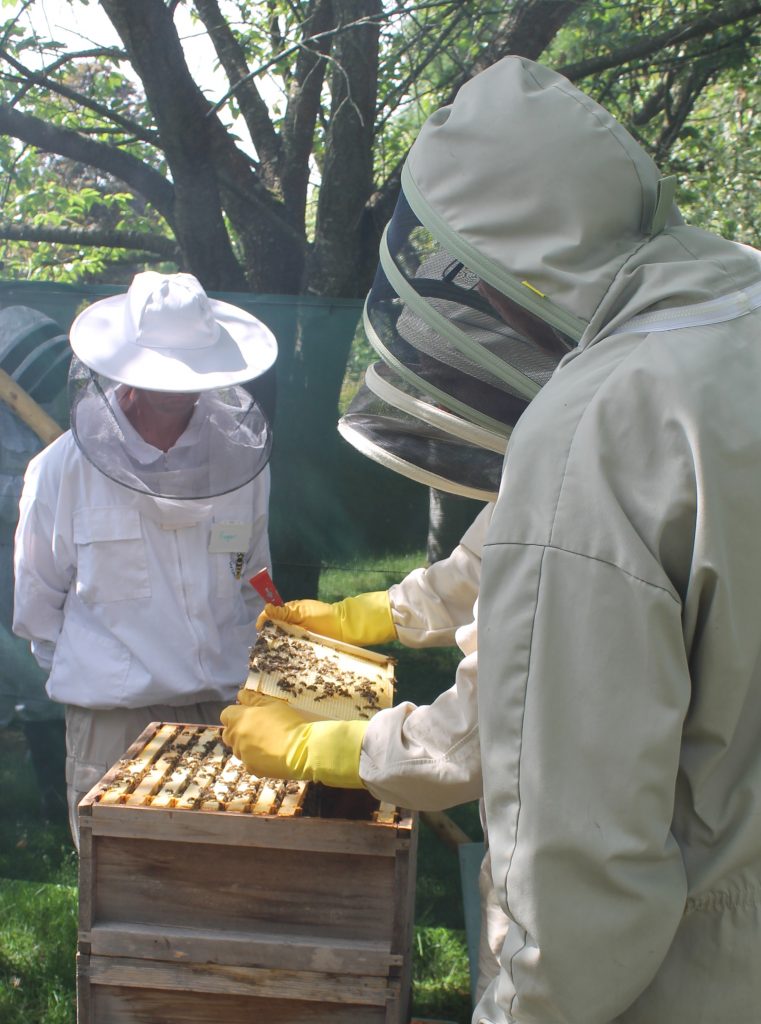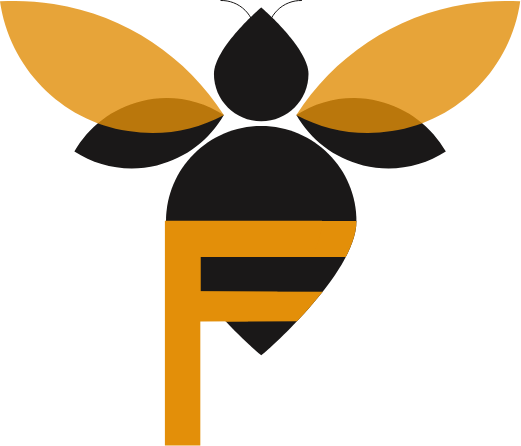Here are some things to consider if you’re thinking of keeping bees. A range of questions about getting started are covered on our Becoming a Beekeeper page.
1) It can be expensive
It is often joked that your first jar of honey could cost £600 – a rough indication of what it can cost to get set up and started with a hive, kit, bees & knowledge; however it is possible to buy second hand hives or even construct your own if you have the skills. There are also some ongoing regular costs as well as many possible additions. And for the first year, your new colony is unlikely to produce any spare honey.
2) The site you have in mind has to be suitable
If you are thinking of keeping bees in your garden there are a few important things to consider. Close proximity to livestock, public footpaths, bridleways, playing fields or schools should be avoided, and it is wise to discuss your plans with neighbours as the bees will over-fly other gardens, though generally without being noticed. But should there be a problem you may need to find a new site for your bees. However, you can’t just decide to move a hive somewhere close by. Besides hives being very heavy and awkward to handle, bees have a strong homing instinct and return to the site of their home, even when it’s not there, so precautions and a distance of at least 3 miles is recommended when moving a hive.
3) They need regular attention and can be time consuming
In the spring and summer bees are very active and you need to look through the hive boxes and check the brood nest weekly during this period. But bees are temperature sensitive so your weekly check can’t just be every Wednesday evening as it may be wet or too cold, and they would have to be checked soon after instead. These checks are to examine their health, wealth and happiness but also to try to avoid them swarming – if you don’t do it every week you may lose a swarm, your honey crop and possibly annoy your neighbours in the process!
4) Bees are a long-term commitment
Bees are a long term commitment and we recommend reading up on the subject and attending an introductory beekeeping course before you invest in your bees. There are two books in particular we recommend; The BBKA Guide to Beekeeping and The Haynes Bee Manual, but there are many others available. Basic training is highly recommended so that you are fully aware of what’s involved, how to manage bees and the commitment. FBKA runs a beginners’ theory course in the winter with an associated practical course in spring.
5) You need somewhere to store equipment
There is a surprising amount of equipment, much of which comes and goes to and from the hive so you need a bee proof place to store it.
6) It is heavy work
A honey super can weigh around 14kg (30lb) when really full, and hopefully you will have many of those. The larger brood box is even heavier when full of stores, about 23kg (50lb), and you often have two of those and will need to lift one out of the way to look in the other. So if you have difficulty lifting heavy weights you need to consider this and perhaps work with a beekeeping partner.
7) You will inevitably get stung
If bees are handled well, getting stung should be fairly rare, but it will happen; and colonies have different temperaments so you need to know what’s normal and what’s not and what to do about it. When working with bees you will be wearing a bee suit or jacket and gloves, but remember that your family, friends and neighbours will not have such protection!
The effect of a sting ranges from a brief pin-prick through some pain and swelling to potentially life-threatening reactions. You need to be aware of the signs and the risks.

